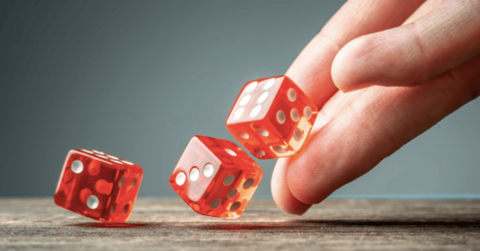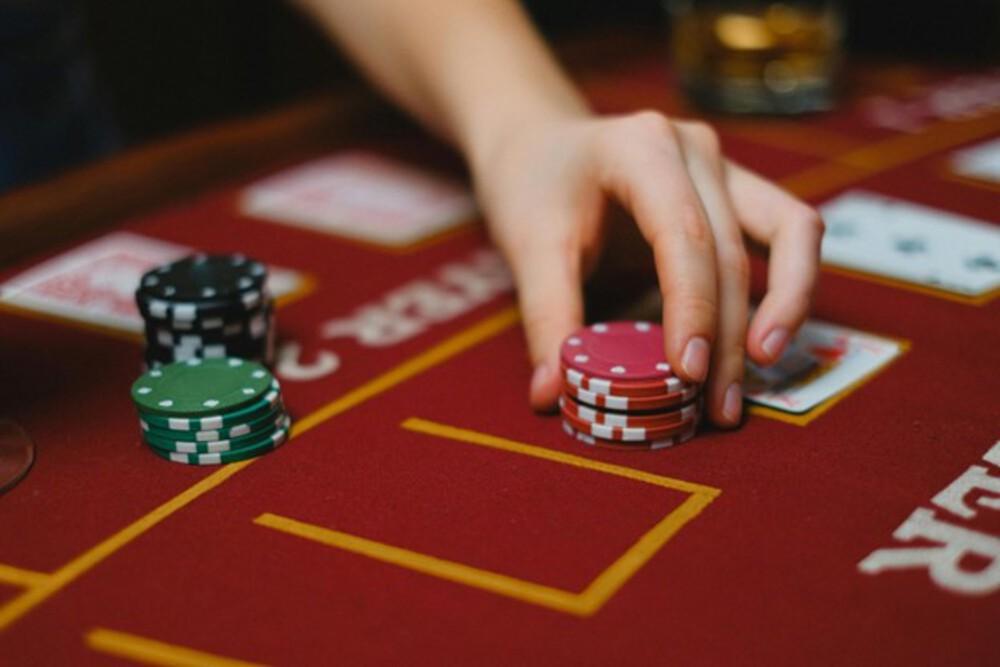The Science of Gambling: Exploring the Role of Luck and Skill

Feb. 3 2024, Published 9:34 p.m. ET
For centuries, the gambling world has fascinated enthusiasts with its blend of excitement and the promise of financial gain. Whether betting on sports or playing casino games, people chase fortune and fun through gambling.
Even with the digital revolution, it's still as captivating but unpredictable, although with more perks and incentives. Those well-versed in this realm, such as the casino experts from Slotozilla, deeply understand this dynamic and exhilarating world.
Whether online or land-based, players continue to search for what it takes to have significant and consistent success in the world of gambling. Is it pure luck or honed skill? Only if the answer can be straightforward. Except in a few popular games, players' fates are determined by a blend of unpredictability and strategic abilities in various degrees.
Pure Chance: Embracing the Unpredictable Force of Luck
Certain games offer players essentially zero ability to influence the outcomes. Lady's luck has the final, and the most say when playing those games. After placing their wager and clicking a button or pulling a lever, the outcomes are beyond the player's control. Slot machines serve as a prime example of this category. To minimize the risk of losing their money, players can opt for bonuses like free slots available when they visit this page.
With skill or experience having zero influence, novices have the same chance of success as veterans. At the heart of every game of luck when played online is the random number generator (RNG). It's a computer program that ensures lady luck applies 100% randomness to every dice roll, wheel spin, or card dealt.
The randomness responsible for the allure and thrills of these games also doubles as the bane of gamblers. In other words, it can bring significant wins with small stakes and drain a sizable bankroll within minutes. Games that rely on unpredictable chance as their gameplay with no room for influencing the outcomes with skills or strategies include:
Slots
Roulette
Keno
Bingo
Dice
Lotteries
Scratch off cards
Tilting the Odds Slightly With Bankroll Management
Every gambler should understand the fundamental concepts of probability and odds in gambling and apply them to good effect. Even though there is little to nothing a player can do to gain an advantage, understanding probability helps with decision-making, reducing risks and good bankroll management.
For instance, the probability of a side of a coin landing face up is 50%, but that outcome is not guaranteed after several tosses. However, effective bankroll management keeps you in the game long enough for that side of the coin to face up.
The longer your gaming session, the better your probability of landing a win. The key here is setting a budget before starting a session and sticking to it, knowing when to stop and avoid chasing losses. Proper application helps maximize chances of winning, minimize losses and give an extended and more enjoyable gambling experience.
Skill-Based Gambling: Banking on Strategic Thinking and Mastery
While the role of luck can not be ruled out entirely from any gambling activity, some games allow players to change their fortune with their abilities. Certain skills often applied in everyday activities, from strategic thinking, grasp of probabilities, mathematical calculations, and emotional control to physical prowess, become invaluable when playing games in this category. Though mastering those skills doesn't completely eliminate the role of luck, they make the odds of winning better.
A player with more experience and abilities will likely have the upper hand and make better decisions than others. For example, poker requires mastering the art of reading the opponents, knowing which card to hold or fold and when to bet or bluff.
Becoming a good blackjack player demands having a mathematically sound strategy and a card counting skill for extra advantage. Gambling games in which skill, strategy or knowledge matters greatly in having any significant success are poker, blackjack, rummy, esports, sports betting, fantasy sports betting and puzzle games.
Influencing the Games With Strategies
To get to the level of influencing the outcome of skill-based gambling games consistently requires dedication. Such a level of proficiency takes time, effort and sometimes money to learn the intricacy of that game. It entails studying and trying different strategies in practice mode or low-stakes environments, plus staying current on new developments.
It is worth noting that the house retains some control and keeps a certain percentage of the overall bets, regardless. This advantage, known as the house edge, ensures the house makes a profit. Hence the famous saying: the house always wins. Here are tips to make the most of your skills in gambling:
Make use of practice mode to master a skill-based game and strategies.
Develop basic math skills to calculate house edge and take well-calculated risks.
Sharpening analytical skills helps in analyzing situations and opponents in games like poker.
Be patient. Don't lose control because of winning or losing streaks.
How and When Skills and Luck Interplay
The level of skills required varies from game to game. Even in games like slots and roulette, understanding the unpredictability of the outcomes and staking accordingly is a skill in itself.
The role of skills is more apparent in some games in which players can leverage probability and statistics to exploit money line mismatches like experienced sports bettors do. With that in mind, let's explore how skills and luck intersect in popular gambling games.
How Skills and Luck Interact in Popular Gambling Games
In the realm of chance, where strategic prowess meets sheer luck, outcomes often hinge on a delicate balance. This table highlights key examples that illuminate how skills and luck intersect in various popular gambling games:
| Games | Roles of Chance | Roles of Skill |
|---|---|---|
| Slots | Almost completely luck-dependent. | Minimal to no skill other than managing bankroll. |
| Roulette | It depends mostly on luck. | Only controlling bet size is required. |
| Poker | Moderate luck based on the cards dealt. | Knowledge of probability, reading opponents' behaviors and bluffing |
| Blackjack | Moderate | Good calculation skills and card counting. |
| Betting (Sports and eSports) | Depends on the teams playing. | Requires knowledge, analysis and strategy. |
Choosing Suitable Games

Besides winning money, games are meant to be enjoyed. Every player should choose and play based on interest and preferred style of play. Some prefer quick games for a relaxed and casual gaming experience, while others love active gameplay with strategic thinking and decision-making. Either of the two is fine if you find it engaging and enjoyable.
Also, understanding your strong points might be the best pointer to the type of games that suit you best. If you often excel in math and calculation tasks, certain skill-based games like poker and blackjack might be perfect and fun for you. Instinctive players will find the unpredictability of games based on luck appealing. It doesn't matter whether you love applying skills or prefer riding luck; go for the games where you make the best decisions and have the most fun.
Conclusion
Skills can make a huge difference when playing certain games, but not as portrayed in the movies where a character would repeatedly run up stacks of chips at will. Even the most experienced poker mastermind or blackjack brainiac would need to court lady luck to maintain a winning streak. There is no better to attract her smile than actively honing your skills and developing a strategy.
More often than not, the two elements interplay, catering to varieties of game tastes. Whichever side you find thrilling on the luck-skill spectrum, guide yourself against the risks associated with this fun activity by practicing responsible gambling. The best approach to gambling is one in which informed decisions are made and potential financial risks minimized while enjoying the thrill of its unpredictability.
The information provided in this article is for general informational purposes only. Gamble or play responsibly. If you or someone you know has a gambling problem, help is available. Call 1-800-GAMBLER. If you’re in the U.K. and need help with a gambling problem, call the National Gambling Helpline on 0808 8020 133 or go to gamstop.co.uk to be excluded from all UK-regulated gambling websites. We disclaim any liability for any loss or damage arising directly or indirectly from the use of, or reliance on, the information presented.


